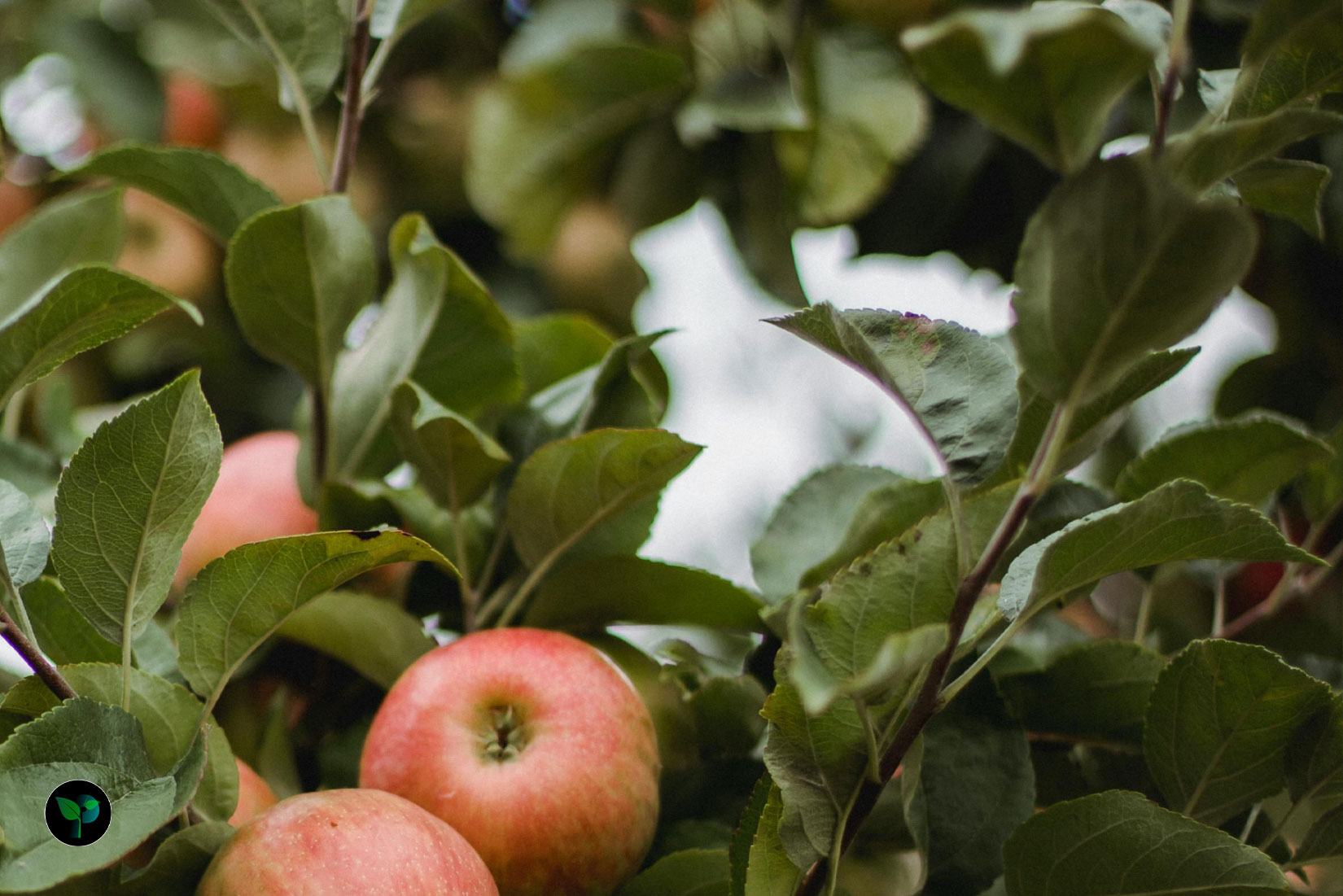Step into the fascinating world of Plants Folder, where we uncover the lesser-known treasures of nature. In this latest exploration, we delve into the intricate beauty and potential benefits of apple plant leaves, a humble yet remarkable component of the beloved apple tree. Join us on a botanical journey as we unravel the secrets and virtues of apple plant leaves, beyond their role in photosynthesis. From antioxidant-rich properties to aromatherapy potential, these leaves hold a wealth of possibilities waiting to be explored.
Apple plant leaves, like those of many fruit-bearing trees, contain certain compounds that may offer potential health benefits. Here are some of the possible benefits associated with apple plant leaves:
Potential Benefits of Apple Plant Leaves

Antioxidant Properties
Apple plant leaves contain antioxidants, such as flavonoids and polyphenols, which help protect cells from damage caused by free radicals. This can contribute to overall health and well-being.
Anti-Inflammatory Effects of Apple Plant Leaves
Some compounds in apple plant leaves may have anti-inflammatory properties, which could help reduce inflammation in the body and possibly alleviate conditions like arthritis or inflammatory diseases.
Digestive Support
Traditional medicine practices suggest that apple plant leaves may aid digestion and promote gut health. The leaves are sometimes used in herbal teas or remedies for digestive issues.
Blood Sugar Regulation
Some studies suggest that certain compounds in apple leaves may help regulate blood sugar levels. This potential benefit could be valuable for individuals managing diabetes or trying to maintain stable blood glucose levels.
Stress Relief
Herbal teas made from apple plant leaves are sometimes used for their calming effects, promoting relaxation and reducing stress. This can have a positive impact on mental well-being.
Ways to Use Apple Plant Leaves
They can be used in various ways for their potential health benefits and culinary applications. Here are some common methods of using apple plant leaves:
Herbal Tea
They can be dried and used to make herbal tea. Simply steep a few dried leaves in hot water for a few minutes to create a soothing and aromatic tea. This tea may offer potential health benefits, such as antioxidant support and stress relief.
Infused Water
Add fresh or dried leaves to a pitcher of water for a refreshing and subtly flavored drink. This infused water can be enjoyed cold or at room temperature.
Cooking
In some cuisines, they are used as a flavoring agent in certain dishes. They can be added to soups, stews, or sauces to impart a delicate apple-like aroma.
Potpourri
Dried apple leaves can be used in potpourri blends to add a natural and refreshing scent to your home. Combine them with other dried herbs, flowers, and spices for a customized potpourri mix.
Natural Cleaning
Infuse vinegar with apple plant leaves to create a natural cleaning solution. The leaves’ aromatic properties can help freshen up your cleaning routine while providing a pleasant scent.
Topical Applications
Some traditional practices use apple plant leaves in poultices or topical preparations for minor skin irritations or as a compress for relaxation.
Safety Reminder
– Ensure the leaves are from edible apple varieties, as some ornamental apple leaves can be toxic.
– Be cautious with using apple plant leaves for medicinal purposes; consult with a healthcare professional for advice on appropriate use.
While apple plant leaves can offer potential benefits, certain individuals should exercise caution or avoid using them:
Groups who should not use apple plant leaves
Allergy Concerns
Individuals who are allergic to apples may also be sensitive to its leaves. If you have known allergies to apples or related fruits, avoid using apple plant leaves to prevent an allergic reaction.
Pregnant or Nursing Women
Pregnant or breastfeeding women should consult with a healthcare provider before using these leaves for medicinal purposes. Some compounds in the leaves may have effects that could be potentially harmful during pregnancy or while nursing.
Children
As a precaution, it is best to avoid using it for children unless under the guidance of a healthcare professional. Children may be more sensitive to certain compounds present in plant leaves.
Individuals with Existing Health Conditions
If you have chronic health conditions, especially related to the digestive system, liver, or kidneys, consult with a healthcare provider before using these leaves, as they may interact with existing medications or exacerbate certain conditions.
Pets
Just as apple seeds are toxic to pets, some parts of the apple plant can also be harmful to animals. Avoid exposing pets to these leaves to prevent ingestion and potential toxicity.
Daily Consumption of Apple Plant Leaves
The consumption of apple plant leaves can vary based on factors such as individual tolerance, preparation methods, and personal health considerations. Here are some general guidelines to consider when using apple plant leaves daily:
Moderation: These leaves are not commonly consumed in large quantities. It is recommended to use them in moderation, especially if you are incorporating them for potential health benefits or culinary purposes.
Herbal Tea: If using this plant’s leaves to make herbal tea, a couple of leaves steeped in hot water per day is a common amount. Adjust based on preference and how your body responds.
Cooking: When using it as a culinary herb, the amount used is usually small for flavoring. It’s advisable to follow recipes or use a modest quantity to avoid overwhelming the dish.
Adverse Reactions: Some individuals may be sensitive to specific compounds in it. If you experience any adverse reactions or discomfort, reduce the amount consumed or discontinue use.



Leave a Reply